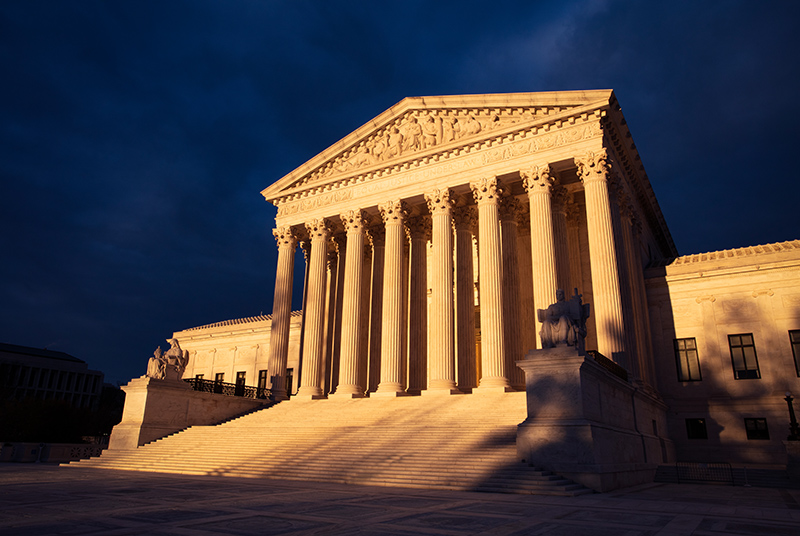Federal judge strikes down Kentucky same-sex marriage ban

A federal judge struck down Kentucky’s ban on same-sex marriage Tuesday, declaring the law in violation of the Equal Protection Clause of the Fourteenth Amendment to the U.S. Constitution.
U.S. District Court Judge John Heyburn’s ruling builds upon another he issued in February finding Kentucky must recognize same-sex marriages performed in other jurisdictions. Heyburn stayed his ruling today pending appeal to the Sixth Circuit Court of Appeals.
In his decision, Heyburn dismissed arguments made by the state that prohibiting same-sex marriage is necessary for promoting relationships that can produce children, which Heyburn described as the defendant’s “only asserted justification for Kentucky’s laws.”
“Perhaps recognizing that procreation-based arguments have not succeeded in this Court…nor any other court post-Windsor, Defendant adds a disingenuous twist to the argument: traditional marriages contribute to a stable birth rate which, in turn, ensures the state’s long-term economic stability,” Heyburn wrote. “These arguments are not those of serious people.”
Kentucky voters approved a constitutional amendment in 2004 defining marriage as between a man and a woman and prohibiting recognition of same-sex marriages performed in other states. Heyburn was recommended to the federal bench by Republican Sen. Mitch McConnell and nominated by President George H. W. Bush in 1992.
Kentucky Gov. Steve Beshear is defending the state’s marriage ban after Attorney General Jack Conway announced in March he would not waste resources “pursing a case we are unlikely to win.” Both men are Democrats.
“Those opposed by and large simply believe that the state has the right to adopt a particular religious or traditional view of marriage regardless of how it may affect gay and lesbian persons,” Heyburn continued. “But, as this Court has respectfully explained, in America even sincere and long-held religious views do not trump the constitutional rights of those who happen to have been out-voted.”
In the year since the Supreme Court’s 5-4 decision in U.S. v. Windsor, which found Section 3 of the Defense of Marriage Act unconstitutional, marriage equality hasn’t lost a single day in court. Federal courts have ruled in favor of marriage equality in Utah, Ohio, Oklahoma, Kentucky, Idaho, Illinois, Indiana, Michigan, Pennsylvania, Tennessee, Texas, Virginia, Oregon, Wisconsin and Indiana. The 10th Circuit Court of Appeals was the first federal appeals court to weigh in on same-sex marriage since the Windsor decision and reaffirmed a lower court’s ruling that Utah’s same-sex marriage ban is unconstitutional last month.
Support Metro Weekly’s Journalism
These are challenging times for news organizations. And yet it’s crucial we stay active and provide vital resources and information to both our local readers and the world. So won’t you please take a moment and consider supporting Metro Weekly with a membership? For as little as $5 a month, you can help ensure Metro Weekly magazine and MetroWeekly.com remain free, viable resources as we provide the best, most diverse, culturally-resonant LGBTQ coverage in both the D.C. region and around the world. Memberships come with exclusive perks and discounts, your own personal digital delivery of each week’s magazine (and an archive), access to our Member's Lounge when it launches this fall, and exclusive members-only items like Metro Weekly Membership Mugs and Tote Bags! Check out all our membership levels here and please join us today!



























You must be logged in to post a comment.